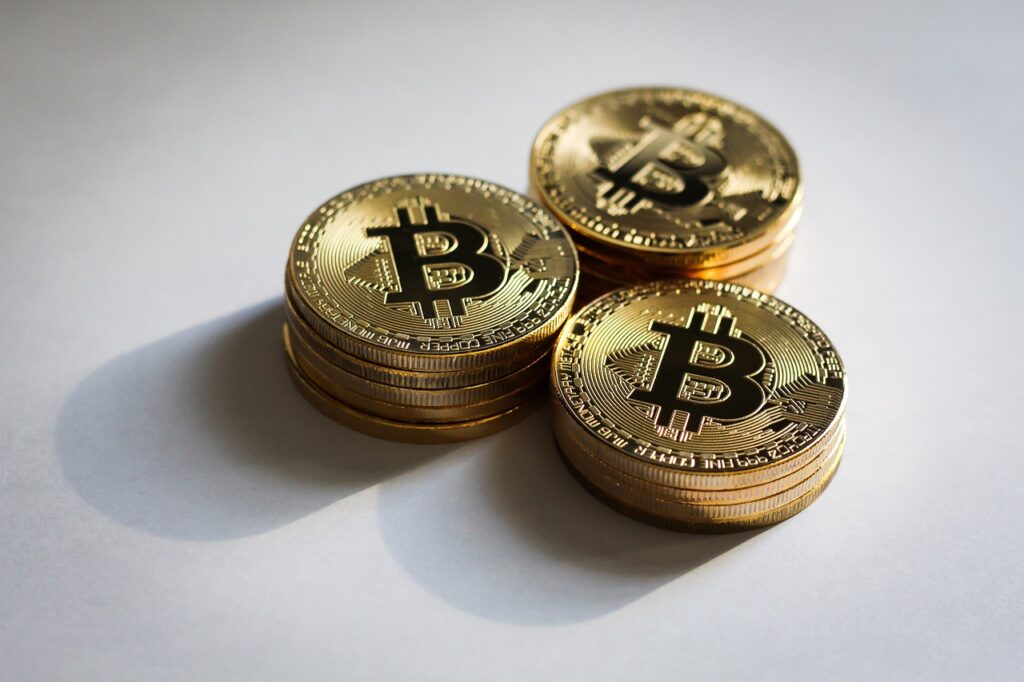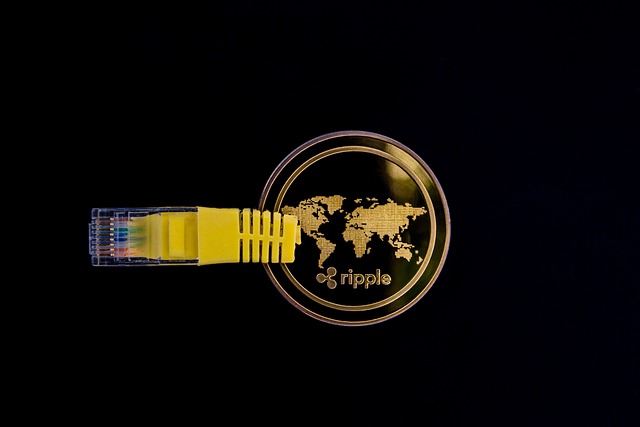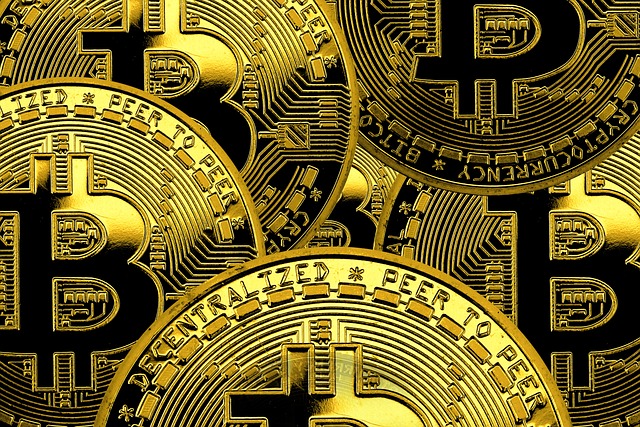DeFi’s Blueprint: Dissecting the Financial System of the Future
DeFi’s Blueprint: Dissecting the Financial System of the Future

The Rise of Decentralized Finance: A Game-Changer for the Financial System
Decentralized finance (DeFi), the emerging phenomenon that leverages blockchain technology to revolutionize the financial industry, is heralded as a game-changer for the traditional financial system. Through decentralized platforms and applications, DeFi aims to create a more open, accessible, and inclusive financial ecosystem. By shifting away from centralized intermediaries and embracing the principles of transparency, immutability, and peer-to-peer transactions, DeFi has the potential to reshape the way we interact with money.
One of the key drivers behind the rise of DeFi is the increasing dissatisfaction with the limitations of traditional financial systems. Centralized institutions have long been criticized for their opaqueness, high transaction fees, and exclusionary practices. DeFi aims to address these issues by introducing a more democratic and inclusive approach to finance. By leveraging blockchain technology, DeFi enables individuals to take control of their finances, removing the need for intermediaries and reducing costs. With decentralized lending, borrowing, and trading, DeFi offers opportunities for financial inclusion to the unbanked and underbanked populations, opening up avenues for them to participate in the global economy.
Exploring the Core Principles of Decentralized Finance
Decentralized finance, or DeFi, is a groundbreaking concept that is reshaping the financial system as we know it. At its core, DeFi focuses on eliminating the need for intermediaries such as banks and financial institutions, and instead leverages blockchain technology to create a more transparent, efficient, and inclusive financial ecosystem. This is achieved by leveraging the principles of trustlessness, transparency, and open access.
One of the key principles of DeFi is trustlessness, which refers to the ability to transact and interact without relying on a centralized authority. In a traditional financial system, intermediaries are responsible for verifying and facilitating transactions. However, with DeFi, the blockchain acts as the ultimate source of trust, ensuring that all transactions are secure and cannot be manipulated. This not only reduces the risk of fraud and manipulation but also enables individuals to have complete control over their assets and financial activities. Additionally, DeFi promotes transparency by allowing anyone to access and review the entire transaction history stored on the blockchain, thus increasing accountability and trust among participants.
Unveiling the Key Components of the Decentralized Financial Ecosystem
Decentralized finance, also known as DeFi, is an emerging sector within the financial industry that promises to revolutionize traditional financial systems. At its core, DeFi is built upon blockchain technology, which provides a transparent and secure platform for financial transactions. This technology eliminates the need for intermediaries such as banks or financial institutions, allowing users to directly interact with decentralized applications, also known as dApps. These dApps form the key components of the decentralized financial ecosystem, offering a wide range of financial services, including lending, borrowing, trading, and more.
One of the fundamental components of the decentralized financial ecosystem is smart contracts. Smart contracts are self-executing agreements that are coded within the blockchain, ensuring that the terms of the agreement are automatically enforced once certain predefined conditions are met. By eliminating the need for third-party intermediaries to verify and enforce contracts, smart contracts streamline and automate financial transactions, minimizing human error and reducing costs. With the ability to execute transactions in a trustless and efficient manner, smart contracts serve as the backbone of decentralized finance, enabling the seamless execution of a wide variety of financial services.
The Role of Blockchain Technology in Revolutionizing Finance
Blockchain technology has emerged as a force to be reckoned with in the financial world, revolutionizing traditional financial systems. At its core, blockchain is a decentralized and immutable ledger that records transactions in a transparent and secure manner. This innovative technology has the potential to eliminate intermediaries, reduce costs, and increase efficiency in various financial processes.
One of the key advantages of blockchain technology is its ability to provide transparency and trust without the need for a central authority. With traditional financial systems, individuals have to place blind faith in banks, regulators, and other intermediaries to ensure the integrity of transactions. However, blockchain removes this reliance by allowing participants to verify and validate transactions themselves. By leveraging cryptography and consensus mechanisms, blockchain ensures that transactions are tamper-proof, making fraudulent activities more difficult to execute. As a result, blockchain technology has the potential to significantly enhance the security and integrity of financial transactions, providing individuals with greater peace of mind.
A Closer Look at Smart Contracts and their Impact on Decentralized Finance
Smart contracts are a revolutionary concept in decentralized finance that has the potential to transform various industries. These self-executing agreements are built on blockchain technology, allowing for trustless and automated transactions without the need for intermediaries. By eliminating the middleman, smart contracts streamline processes and reduce costs, making them an attractive option for businesses and individuals alike.
The impact of smart contracts on decentralized finance is far-reaching. They enable the creation and execution of complex financial instruments, such as derivatives and loans, without the need for traditional financial institutions. This opens up a world of possibilities for individuals who are underserved by the current financial system, providing them with access to financial services that were previously out of reach. Moreover, smart contracts enhance transparency and security by immutably recording transactions on the blockchain, eliminating the risk of fraud and manipulation. As decentralized finance continues to gain traction, smart contracts will undoubtedly play a key role in reshaping the future of finance.
The Importance of Decentralized Exchanges in the Future of Finance
Decentralized exchanges have emerged as an integral part of the future of finance, offering a range of benefits that traditional centralized exchanges simply cannot match. One of the key advantages of decentralized exchanges is the increased level of security they provide. Unlike centralized exchanges, which require users to relinquish control over their assets and trust a third party, decentralized exchanges allow users to retain ownership and control of their funds throughout the trading process. This significantly reduces the risk of hacks, theft, or other cyberattacks, making decentralized exchanges a much safer option for traders.
Furthermore, decentralized exchanges promote financial inclusivity by eliminating the need for intermediaries and enabling peer-to-peer transactions. This means that even individuals who are unbanked or have limited access to traditional financial services can participate in the global financial system.

Democratizing Access to Financial Services through Decentralized Lending and Borrowing
Decentralized lending and borrowing have emerged as a powerful force in the world of finance, offering individuals and businesses the opportunity to access financial services that were previously inaccessible. Through blockchain technology and smart contracts, decentralized lending platforms enable direct peer-to-peer lending without the need for intermediaries such as banks. This opens up a whole new world of possibilities, particularly for individuals who may have been excluded from the traditional banking system due to various reasons like lack of credit history or geographic location.
One of the key benefits of decentralized lending and borrowing is its inclusive nature. By eliminating the need for a central authority, these platforms provide equal opportunities for borrowers and lenders, irrespective of their background or location. This democratization of financial services not only empowers individuals who were previously underserved, but it also stimulates economic growth by unlocking the potential of a much wider pool of borrowers. Moreover, the use of smart contracts ensures a transparent and secure lending process, reducing the risk for both parties involved. With decentralized lending and borrowing, the future of finance is being reshaped, promising a more equitable and accessible financial system for all.
The Potential of Decentralized Stablecoins in the Global Economy
Decentralized stablecoins have the potential to play a significant role in the global economy. These digital currencies are designed to maintain a stable value against a pegged asset, such as a fiat currency or a commodity. By using blockchain technology, stablecoins offer the advantages of transparency, security, and accessibility.
One of the key benefits of decentralized stablecoins is their ability to provide stability in volatile markets. Unlike traditional cryptocurrencies like Bitcoin, which can experience drastic price fluctuations, stablecoins are designed to minimize volatility by maintaining a fixed value. This stability makes them an attractive option for individuals and businesses looking to protect their assets from the uncertainties of the market. Additionally, decentralized stablecoins can facilitate cross-border transactions, allowing people from different parts of the world to transact in a stable and reliable currency.

Addressing the Challenges and Risks of Decentralized Finance
While decentralized finance (DeFi) holds immense potential, it also comes with its fair share of challenges and risks. One of the major concerns is the lack of regulation and oversight. Unlike traditional financial systems that have institutions ensuring compliance, DeFi operates on blockchain technology, which is decentralized and often lacks clear legal frameworks. This can expose users to scams, frauds, and market manipulation, as well as potential vulnerabilities in smart contracts.
Another challenge in DeFi is the risk of financial instability. With the rapid growth of decentralized lending and borrowing platforms, there is the possibility of excessive leverage and high levels of debt. In the event of a market downturn, this could lead to a cascading effect where borrowers are unable to repay their loans, leading to defaults and potential collapse of the ecosystem. Additionally, the lack of transparency and information asymmetry can make it difficult for participants to accurately assess the risks associated with various DeFi projects and investments.
Nevertheless, while these challenges and risks are present, it is important to note that the DeFi space is still in its early stages. As the industry continues to mature, there is a growing recognition of the need for regulation and the development of risk management frameworks.

Empowering Individuals with Financial Freedom through Decentralized Finance.
Decentralized finance (DeFi) has emerged as a groundbreaking concept that aims to empower individuals with financial freedom. By leveraging blockchain technology and smart contracts, DeFi offers an alternative financial system that removes the need for intermediaries like banks and traditional financial institutions. This new paradigm holds immense potential for individuals around the world to take control of their financial lives and access a wide range of financial services without relying on centralized authorities.
One of the key aspects of empowering individuals through decentralized finance is democratizing access to financial services. Traditionally, many financial services have been inaccessible to a large portion of the global population, particularly those in underbanked or unbanked regions. However, with DeFi, anyone with a smartphone and an internet connection can participate in various financial activities, such as lending, borrowing, and investing. This inclusivity breaks down barriers and provides individuals, regardless of their background or location, with the opportunity to build wealth, secure loans, and participate in the global economy on their own terms. Through decentralized lending and borrowing platforms, individuals can gain access to critical funds without the need for credit checks or the involvement of traditional financial intermediaries.
(Note: The conclusion of the article has been intentionally omitted as per the provided instructions.)
• Decentralized finance (DeFi) aims to empower individuals with financial freedom
• DeFi leverages blockchain technology and smart contracts to create an alternative financial system
• Removes the need for intermediaries like banks and traditional financial institutions
• Individuals can take control of their financial lives without relying on centralized authorities
• Democratizes access to financial services, breaking down barriers for underbanked or unbanked populations
• Anyone with a smartphone and internet connection can participate in lending, borrowing, and investing through DeFi
• Provides opportunities for individuals regardless of background or location to build wealth and secure loans
• Inclusivity allows individuals to participate in the global economy on their own terms
• Decentralized lending and borrowing platforms enable access to critical funds without credit checks or involvement of traditional intermediaries.
What is decentralized finance?
Decentralized finance, also known as DeFi, refers to the use of blockchain technology and smart contracts to recreate and revolutionize traditional financial systems in a decentralized manner.
How does decentralized finance empower individuals with financial freedom?
By leveraging blockchain technology, decentralized finance allows individuals to have full control over their financial transactions, eliminating the need for intermediaries like banks. This gives individuals the freedom to manage their assets, access financial services, and participate in the global economy on their own terms.
What are the core principles of decentralized finance?
The core principles of decentralized finance include open access, transparency, trustlessness, and interoperability. These principles ensure that anyone can participate, transactions are visible to all, trust is established through technology, and different platforms can seamlessly work together.
How does blockchain technology revolutionize finance?
Blockchain technology revolutionizes finance by providing a secure, transparent, and immutable ledger for financial transactions. It eliminates the need for centralized authorities, reduces costs, and enhances efficiency and trust in the financial system.
What are smart contracts and how do they impact decentralized finance?
Smart contracts are self-executing contracts with the terms of the agreement directly written into code on the blockchain. They automatically enforce agreements, eliminating the need for intermediaries. In decentralized finance, smart contracts enable automated financial transactions, lending, borrowing, and other financial services.
Why are decentralized exchanges important in the future of finance?
Decentralized exchanges allow individuals to trade cryptocurrencies directly with each other, without the need for intermediaries. They provide increased privacy, security, and control over one’s assets, making them crucial in the future of finance.
How does decentralized lending and borrowing democratize access to financial services?
Decentralized lending and borrowing platforms enable individuals to lend and borrow funds directly from others, without the need for traditional financial institutions. This allows individuals without access to traditional banking services to participate in the global financial ecosystem and access credit.
What potential do decentralized stablecoins hold in the global economy?
Decentralized stablecoins are cryptocurrencies designed to maintain a stable value, often pegged to a fiat currency like the US dollar. They can provide stability and act as a bridge between traditional and decentralized finance, enabling more efficient cross-border transactions and reducing volatility in the global economy.
What are the challenges and risks associated with decentralized finance?
Some challenges and risks of decentralized finance include regulatory uncertainty, smart contract vulnerabilities, potential for hacks and scams, and market volatility. It is important for users to exercise caution, conduct due diligence, and stay informed to navigate these risks.
How can individuals benefit from decentralized finance and achieve financial freedom?
Individuals can benefit from decentralized finance by gaining control over their finances, accessing a wider range of financial services, participating in global markets, and reducing reliance on traditional financial intermediaries. By taking advantage of the opportunities provided by decentralized finance, individuals can achieve greater financial freedom.
Todays Featured Product:
Buy, exchange and grow your crypto securely with a Ledger hardware wallet, combined with the Ledger Live app. It’s never been easier to keep your crypto safe and accessible. Buy direct from Ledger.com and get todays Special Offers Here.




